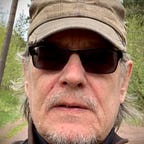How did we get here?
An attempt to look back at what have led to the attack on Ukraine
This is not meant as an apology for what Putin has done. It’s inexcusable. Full stop.
But all the same, it’s worth trying to understand how we ended up with a full scale war in a European country, attacked by its mighty neighbour Russia, under the leadership of its aspiring despot, Vladimir Putin.
Most people are aware of the conflict between NATO and Russia, where Russia perceives the expansion of NATO towards east, as an act of aggression directed towards itself. There are those who think that the Russian demands are reasonable and that the war could have been avoided if NATO had accepted them from the beginning.
I very much doubt it because the roots of the conflict lie deeper and further back in time, back in the first years after the Soviet Union collapsed.
According to the former editor of foreign affairs in Aftenposten, the major conservative Norwegian newspaper,Mr. Ulf Andenæs, who was their correspondent for Eastern Europe around that time, the Russians were very optimistic and foresaw a bright future in the democratic world for themselves. President Boris Yeltsin even believed that Russia could become a member of NATO after some time and suggested as much in an open letter. He was met by an ice front from the American leadership, though, according to Mr. Andenæs. His mood turned completely and he realised that his country wasn’t about to be welcomed into the good company. Instead it was being treated as a loser by the winners. This all took place around 1991–94.
Mr. Andenæs, who had considered himself a ‘cold war warrior’, begun to rethink his former stance and became more critical over the years.
If we add to this, the fact that especially USA wanted to use Russia as an experimental laboratory for unbridled laissez fair capitalism in the spirit of neoliberalism, fronted by economists such as Milton Friedman and supported by Ronald Reagan and Margaret Thatcher, something which led to a shock for many average Russians, who also had thought that they would be entering a very different kind of life from then on. Instead, mass unemployment happened, without any support from a welfare state. It was every man and woman for themselves.
The Russian manufacturing industry wasn’t capable of competing in a free market, neglected as it had been during decades, which led to lots of bankruptcies and shutting down of factories.
During the Soviet regime, a certain class of people had developed, known as ‘fixers’. If you had problems with the Russian bureaucracy or was sat waiting in line for years to get a new car, for instance, you could contact a fixer. They operated in the shadow of the regime and had shady contacts everywhere and knew their way around. Hence the title – fixers.
When the system collapsed, they were among the first to take advantage of the ensuing chaos and some of them became super rich – oligarchs. Others were political operators without scruples who knew that this was the time to act and fast. Because there wasn’t a strong enough state to regulate anything at all, everything was up for grabs.
This is the humiliation which lies behind the ambitions of one particular person who didn’t have a central position in the system, but who had found a safe place within it; a former street thug from Leningrad who had managed to get a foot within the KGB. Vladimir Putin. His rank was higher than a corporal’s, but his place in society was very much the same as a corporal born in Austria, who served in the German army in WW1. The two men harboured similar feelings towards what happened to their countries when they ended up as losers. Both were driven by a desire to ‘put things right’ and quite simply, for revenge.
Putin has often referred to his experience when he was stationed in East Germany and the system he was a part of, crashed down around him. He couldn’t call ‘home’ to Moscow for help, because ‘home’ was no more. It was silent and he was on his own, surrounded by a mob who threatened to tear the building down around him, quite literally.
That’s what he wants to ‘put right’. That’s what lies on the bottom of his hatred of the west, NATO and democracies. He won’t be satisfied by any concessions to his demands until he has had his full revenge. He wants to see his enemies humiliated just as much as he was. He wants them to feel just as helpless, abandoned and alone as he was. To him, it’s personal.
Still, it’s worthwhile understanding what lies behind it. We can only speculate what would have happened if the west led by USA, had treated their former enemy differently and if the leaders of the democratic world hadn’t been blinded by the neoliberal ideology, but it’s not unreasonable to assume that the situation would have been different today and that we may have avoided the rise of a new version of fascism, led by a new Leader.
When we get through this disaster, which we hopefully will sooner than later, we should tell our political leaders not to make the same mistake as they did in Versailles in 1918, when they thoroughly humiliated a broken enemy, Germany. The victors had learnt their lesson in 1945 and the former enemies, Germany and Japan, were soon to become economic miracles and solid democracies, something Russia most probably could have been today as well. Instead the west bungled it up and missed a lot of opportunities – and here we are today.
